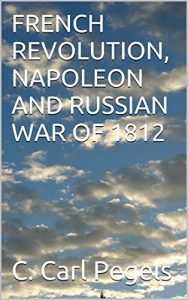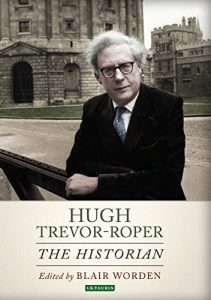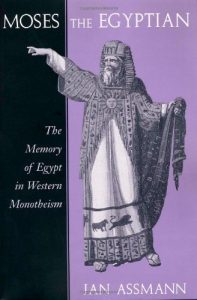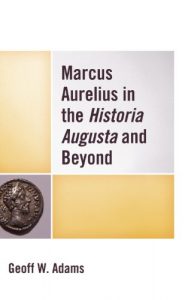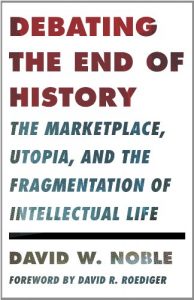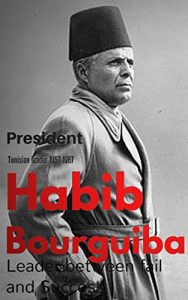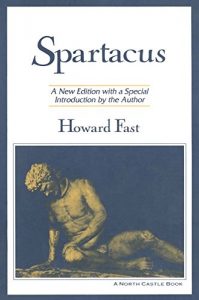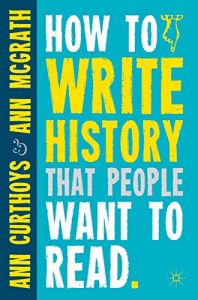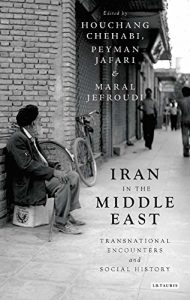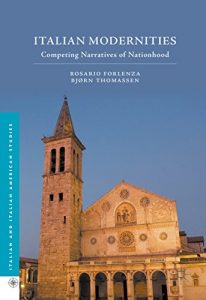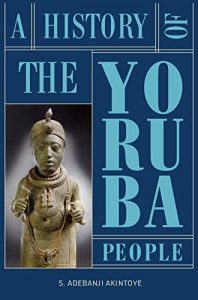I 99eBooks è una directory di eBook. Cerchiamo e classificato intorno alle eBooks Web per te!
Tutti i diritti riservati. I libri e libri elettronici sono di proprietà dei rispettivi proprietari.
FRENCH REVOLUTION, NAPOLEON AND RUSSIAN WAR OF 1812 (English Edition)
The French Revolution from 1789 to 1799 and Napoleon, the famous general and Emperor of France from 1805 to 1815, are closely intertwined. The revolution possibly and probably would have failed without Napoleon. His tactics on the battlefields of Europe undoubtedly helped France being successful with the revolution. Napoleon's control over most of Europe during that time also provided the financial resources to keep the revolution going. The various European vassal states were expected to and did cover the costs of the extensive battles in which Napoleon was engaged.
At the end of the Revolution, in 1899, Napoleon took sole control of France through a government coup of the then French leadership. He would be the sole and supreme governor of France until 1814/1815. A the Battle of Waterloo in present-day Belgium his reign ended, and he was banned to the island of St. Helena in the southern Atlantic Ocean, where he died in 1831.
Napoleon's last extensive and probably the longest war of his reign lasted for most of calendar year 1812. His army named the Grande Armee spent the first half of 1812 marching to Russia, and the second half in Russia pursuing the Russian armed forces. He managed to get as far as Moscow and occupied Moscow for a month from mid- September to mid-October 1812. Then the remainder of his Armee marched in a western direction back towards Western Europe. The winter weather and cold temperatures interfered with the remnants of the Armee, and most of the Armee was destroyed by the time the remnants reached the border of Poland.
Virtually the entire Armee was wiped out by a typhus epidemic, extremely cold weather, battles with the Russian army and the Cossacks. The author's great great grandfather was one of the survivors. His Dutch pontoonier unit of 400 men was destroyed and only eight men survived the ordeal. Because of his survival this book could be written.
At the end of the Revolution, in 1899, Napoleon took sole control of France through a government coup of the then French leadership. He would be the sole and supreme governor of France until 1814/1815. A the Battle of Waterloo in present-day Belgium his reign ended, and he was banned to the island of St. Helena in the southern Atlantic Ocean, where he died in 1831.
Napoleon's last extensive and probably the longest war of his reign lasted for most of calendar year 1812. His army named the Grande Armee spent the first half of 1812 marching to Russia, and the second half in Russia pursuing the Russian armed forces. He managed to get as far as Moscow and occupied Moscow for a month from mid- September to mid-October 1812. Then the remainder of his Armee marched in a western direction back towards Western Europe. The winter weather and cold temperatures interfered with the remnants of the Armee, and most of the Armee was destroyed by the time the remnants reached the border of Poland.
Virtually the entire Armee was wiped out by a typhus epidemic, extremely cold weather, battles with the Russian army and the Cossacks. The author's great great grandfather was one of the survivors. His Dutch pontoonier unit of 400 men was destroyed and only eight men survived the ordeal. Because of his survival this book could be written.
